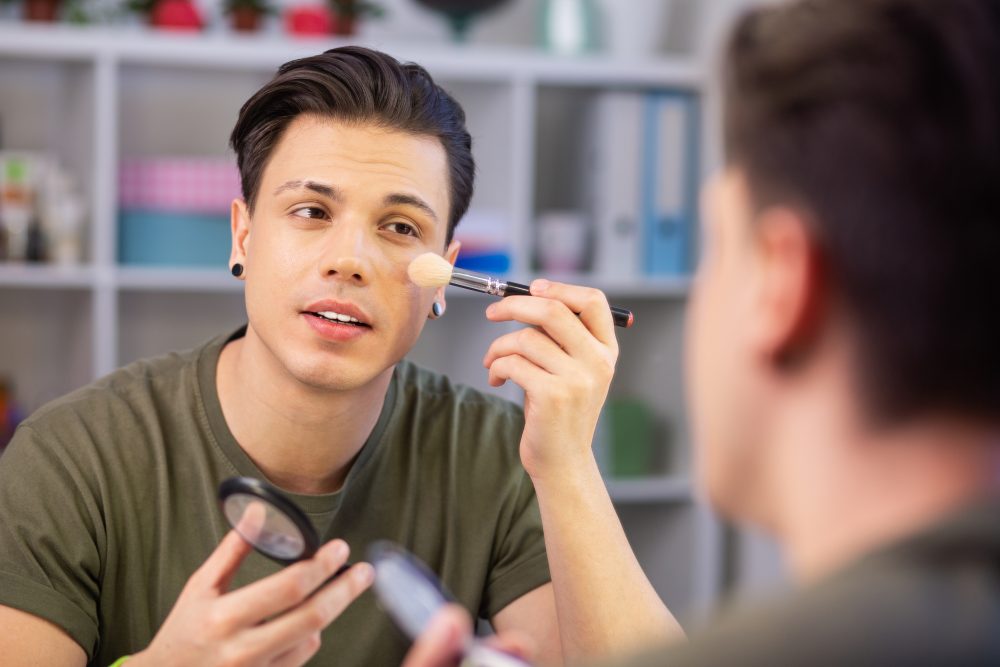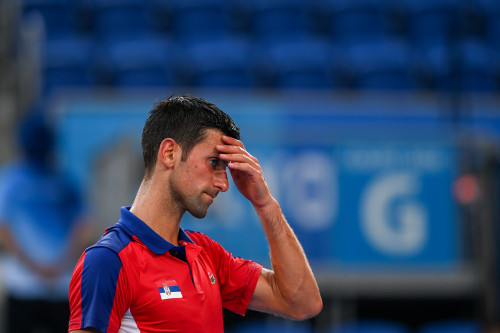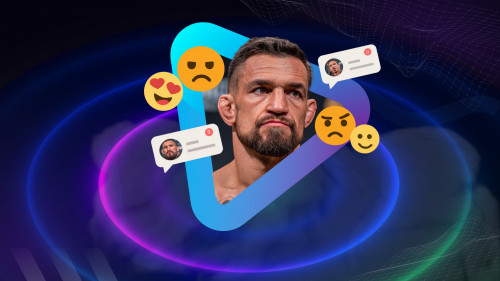When deciding if Novak Djokovic should be allowed to play in the Australian Open, opinions were polarized in the US.
Redefining Beauty Standards
Pandemic-induced social-distancing and moments of isolation have led to prolonged introspection nationwide. In fact as of May, 59% of US adults told us they’ve begun working harder at becoming more self-aware.* People are embracing newfound self-affirming perspectives of themselves inside and out. Thus, a mainstream mission to Flip the Script on long-standing beauty standards has been unleashed, leading to more people boldly proclaiming their unique glow-ups. And people are looking to brands to exemplify these evolved expressions of self-love. On July 10 in Miami, Sports Illustrated, historically known for portraying models as sex objects, held their most inclusive annual fashion show to-date. Women of all shapes, sizes, ages, abilities, and ethnicities strutted the runway, encapsulating their latest mission to “redefine the culture conversation around beauty.” Accordingly, people and brands are boldly welcoming progressive views on natural un-altered looks, men’s beauty, and body image diversity that expand conceptions of beauty.
During the pandemic, many people learned to embrace and value their natural selves. With “putting on” for the outside world deprioritized, un-primed and “natural looks” are extending to people of all ages – and natural aging is beautiful. In July, Welsh actress Catherine Zeta Jones shared a fresh-faced selfie with her 3.4 million Instagram followers, confidently showcasing her gray hairs while posing in a pink robe. At 51 years old, she challenges the convention that beauty equals youth by flaunting posts of unfiltered self-love. Others are joining in on celebrating their gray locks, too. Andie MacDowell, Jodie Foster, and Helen Mirren (also a long-time ambassador and spokesmodel for L’Oréal) all embraced their grays at the Cannes 2021 red carpet.
However, for other people, increased screen time and work from home video conferencing has left them more image-conscious than ever. This includes men. As a result, more men across America are exploring skincare and cosmetic regimes despite stigmatization. Gender inclusive language and packaging from brands like Morphe and Lil Yachty’s CRETE are inviting all identity expressions. Booming e-commerce markets are reducing the pressure of shame-inducing in-person sales. Collectively, this primes the beauty industry for welcoming beauty-curious men with open arms. And sales are spotlighting the shift. In October 2020, Vogue reported that men contributed to less than 1% of the beauty industry’s $532 billion global valuation. By April 2021, June Jensen, director at market research group NPD, saw sales of skincare sets for men increase by 30% from the year prior. Although men’s cosmetics sales remain a fraction of the total, men’s skincare holds a promising future of market share growth in the beauty sector. Trend-forecasting consultancy The Future Laboratory reports that the men’s skincare market will grow by $1 billion by the end of 2024.
While people are flipping beauty standards on their heads, brands are also shifting the zeitgeist by putting an end to ads that body shame. At the start of July, Pinterest in partnership with the National Eating Disorders Association banned all weight-loss ads. Advertisements depicting weight-loss language and imagery, idealizing or denigrating specific body types, “pro-thin” testimonials on weight-loss products, and BMI references were removed. While other social networks like Facebook and Instagram have restricted weight-loss content in the past (e.g., weight-loss products and “miracle” diets), Pinterest is the first to take a bold stance by banning all versions of weight-loss ads completely. The brand’s action reflects a deeper cultural desire for radical self-acceptance. In fact, search data on Pinterest revealed that queries for “self-love illustration art” increased 63 times in 2021 compared to 2020. On a larger scale, early 2021 Google Trends reveal global searches for “body positivity” reaching its highest peak in seventeen years.
Brands can help pave the way for new societal perspectives, too. Following skincare’s footsteps, a jewelry brand can increase its market share amongst men while combatting #ManlyJewelry gender taboos. Tap into Nordstrom’s shoppable streaming channel, Nordstrom Live, to showcase male models of all shapes and sizes boldly embracing inclusive glamorous looks for sale. Provide QR codes throughout the show to allow viewers to purchase instantly. Leading up to the event, host red carpet style pop-ups in bustling cities to invite the public to trial the jewelry for purchase and share their #ManlyJewlery glam shots on social.
Source: *Horizon Media, Finger on the Pulse. Survey fielded 4/27/21-5/4/21, n=857




